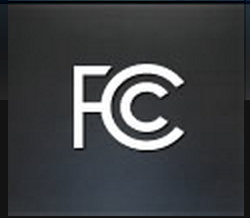Last night I was willing to give FCC Chairman Tom Wheeler the benefit of the doubt when he released a statement saying, “There are reports that the FCC is gutting the Open Internet rule. They are flat out wrong.”
Today I know that benefit was misplaced.
After listening to a conference call the FCC had with reporters this morning and reading Wheeler’s blog post today I realize that the critical responses yesterday were spot on. The proposed Open Internet rules are watered down, and certainly do not preserve anything resembling Net Neutrality.
On this morning’s call an FCC official stressed again and again that the proposal going in front of the Commission on May 15 would protect the Open Internet rules first passed in 2010, that were then struck down by the DC Circuit Court of Appeals earlier this year in Verizon v FCC. The official emphasized that the new effort is to achieve these same goals while making sure the rules will survive court scrutiny.
I can forgive a certain degree of pragmatism, since simply repeating the mistakes of 2010 wouldn’t make sense. But those 2010 Open Internet rules were themselves too much of a compromise to begin with, weak sauce poured on a very unstable soufflé.
In his blog post Wheeler says his Open Internet rulemaking will propose
- That all ISPs must transparently disclose to their subscribers and users all relevant information as to the policies that govern their network;
- That no legal content may be blocked; and
- That ISPs may not act in a commercially unreasonable manner to harm the Internet, including favoring the traffic from an affiliated entity.
Like me, you may be wondering what the hell “commercially unreasonable” means. We’re not alone. In this morning’s call the FCC official was asked again and again to provide some definition. But the only answer was that it’s something that will have to be determined in the upcoming proceeding.
Additionally, there’s a wide gulf between blocking content and restricting it. Under these principles, your internet provider could decide to slow down traffic from a whole host of sites, provided the provider tells you about it, doesn’t block them outright, and doesn’t do it in a “commercially unreasonable” manner. That doesn’t sound like a very open internet to me.
It is only fair to point out that the full proposal has not yet been released, and that the FCC Commissioners will be working on it between now and the Commission’s meeting on May 15. After that, there should be public comment and reply periods.
That said, Chairman Wheeler doesn’t give us very many reasons to be optimistic given what’s been revealed so far.
As I detailed in my post yesterday, the future of radio hinges on a free internet, without discrimination, where large incumbent companies cannot squeeze out new, innovative online broadcasters.
Remember that the National Association of Broadcasters lobbied hard against low-power FM. That was a case of multi-kilowatt radio giants agitating to squash flea-sized 100 watt stations for just one reason: to keep out new stations they could not control, and to stamp out competition.
Now map that to the internet. Those are the stakes.



